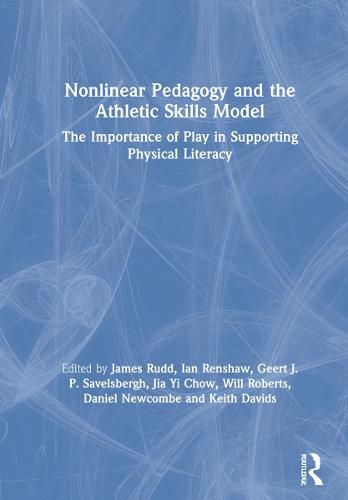Readings Newsletter
Become a Readings Member to make your shopping experience even easier.
Sign in or sign up for free!
You’re not far away from qualifying for FREE standard shipping within Australia
You’ve qualified for FREE standard shipping within Australia
The cart is loading…






This book offers an ecological conceptualisation of physical literacy. Re-embracing our ancestry as hunter gatherers we gain a new appreciation and understanding of the importance of play, not only in terms of how children learn, but also in showing us as educators how we can lay the foundations for lifelong physical activity. The concept of physical literacy has been recognised and understood throughout history by different communities across the globe. Today, as governments grapple with the multiple challenges of urban life in the 21st century, we can learn from our forebears how to put play at the centre of children’s learning in order to build a more enduring physically active society.
This book examines contemporary pedagogical approaches, such as constraints-led teaching, nonlinear pedagogy and the athletic skills model, which are underpinned by the theoretical framework of Ecological Dynamics. It is suggested that through careful design, these models, aimed at children, as well as young athletes, can (i) encourage play and facilitate physical activity and motor learning in children of different ages, providing them with the foundational skills needed for leading active lives; and (ii), develop young athletes in elite sports programmes in an ethical, enriching and supportive manner.
Through this text, scientists, academics and practitioners in the sub-disciplines of motor learning and motor development, physical education, sports pedagogy and physical activity and exercise domains will better understand how to design programmes that encourage play and thereby develop the movement skills, self-regulating capacities, motivation and proficiency of people, so that they can move skilfully, effectively and efficiently while negotiating changes throughout the human lifespan.
$9.00 standard shipping within Australia
FREE standard shipping within Australia for orders over $100.00
Express & International shipping calculated at checkout
This book offers an ecological conceptualisation of physical literacy. Re-embracing our ancestry as hunter gatherers we gain a new appreciation and understanding of the importance of play, not only in terms of how children learn, but also in showing us as educators how we can lay the foundations for lifelong physical activity. The concept of physical literacy has been recognised and understood throughout history by different communities across the globe. Today, as governments grapple with the multiple challenges of urban life in the 21st century, we can learn from our forebears how to put play at the centre of children’s learning in order to build a more enduring physically active society.
This book examines contemporary pedagogical approaches, such as constraints-led teaching, nonlinear pedagogy and the athletic skills model, which are underpinned by the theoretical framework of Ecological Dynamics. It is suggested that through careful design, these models, aimed at children, as well as young athletes, can (i) encourage play and facilitate physical activity and motor learning in children of different ages, providing them with the foundational skills needed for leading active lives; and (ii), develop young athletes in elite sports programmes in an ethical, enriching and supportive manner.
Through this text, scientists, academics and practitioners in the sub-disciplines of motor learning and motor development, physical education, sports pedagogy and physical activity and exercise domains will better understand how to design programmes that encourage play and thereby develop the movement skills, self-regulating capacities, motivation and proficiency of people, so that they can move skilfully, effectively and efficiently while negotiating changes throughout the human lifespan.